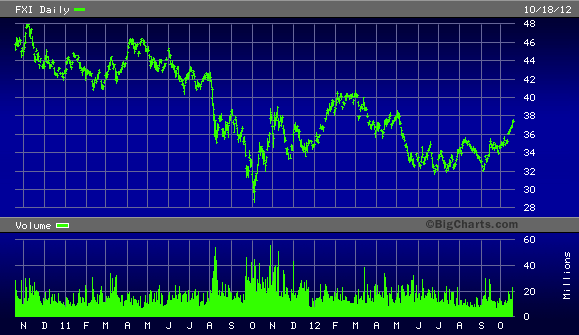China has what I like to call a “high quality problem.”
The Chinese economy grew by 7.4 percent in the third quarter. This was the country’s worst quarter since early 2009, but it was in line with market expectations.
Only in China would 7.4% growth constitute a severe slowdown. I don’t have to tell you that this is far above the growth rates of any other country of any real size. China may not be growing like it used to, but it’s still the best show in town among major world markets.
Sentiment on China remains awful—just this past week, Coca-Cola (KO) joined the long list of Western firms blaming lackluster growth on the Chinese slowdown—but the data is mixed and showing signs of life. Releases o n fixed asset investment, retail sales and industrial output all beat expectations.
All of this rotten sentiment has translated into some pretty horrendous stock returns for Chinese investors. Chinese stocks have been in almost continuous decline for the past two years—at least up until last month.
I recommend investors take a look at the iShares FTSE China 25 Index ETF ($FXI). I like what I see here. Chinese stocks appear to be starting a new uptrend, even while sentiment towards them remains terrible.
If the Chinese economy maybe—just maybe—doesn’t end up being as sick as everyone seems to think it is and we see some signs of life in the next few months, sentiment can shift if a hurry. And when it does, I expect FXI to enjoy a quick boost.
7.4% growth in a slow-growth world isn’t half bad, and eventually investors will reach the same conclusion. In the meantime, we’re getting access to an index that trades at 8 times earnings and yields 2.7% in dividends. Not too shabby indeed.
This article first appeared on TraderPlanet. Sizemore Capital currently has no positions in any securities mentioned.


[…] post China’s GDP: A High-Quality Problem appeared first on Sizemore […]
[…] post China’s GDP: A High-Quality Problem appeared first on Sizemore […]
[…] China’s GDP: A High-Quality Problem […]
[…] China’s GDP: A High-Quality Problem […]